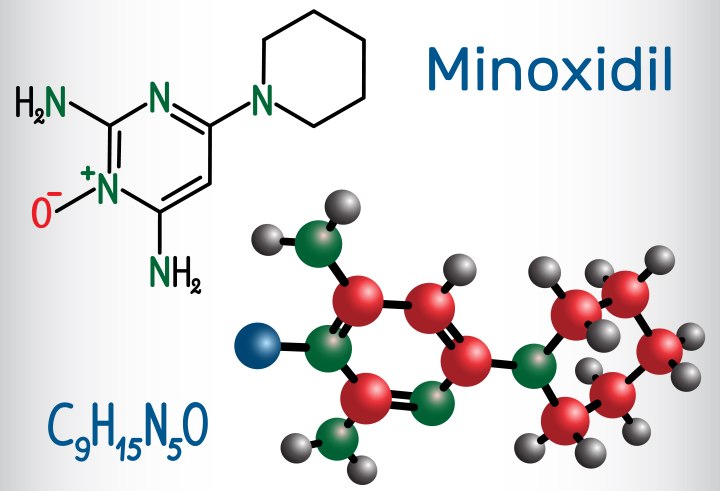Facial Hair Growth Problem

Recently, I was asked about growing facial hair by an individual who was having difficulty in growing facial hair that he felt was esthetically pleasing. His whiskers were sparse and wispy, and he felt that it looked unpleasant regardless of how long he tried to let it grow. In the discussion he asked if he could use minoxidil as a topical solution in order to make his beard and mustache grow thicker.
The theory was that since the drug was available over the counter, it should be safe for topical use, regardless of where it was applied. He also felt that since it worked to restore hair growth on the scalp, it should work to make his facial hair grow thicker as well.
Facial hair growth works on the same principles as those that govern the growth of any other hair. The follicles follow specific growth, rest and shedding cycles that determine how long the hair will grow in each individual follicle. The difference is that hair loss attributed to male pattern baldness is caused by an overabundance of free-testosterone (dihydrotestosterone) in the body, while sparse facial hair growth is almost exclusively caused by genetic factors. (There are conditions like alopecia areata which cause bald patches in facial and body hair areas, but these are different from the genetically spare facial hair.)
Minoxidil works on male-pattern baldness by helping to prevent the process that causes the hair loss. It is said that it causes the follicles to widen and the growth phase to be extended allowing for larger and longer hair to grow. Given that the problem most men describe with growing facial hair is an inability to grow it in the first place, there is no process causing the loss of facial hair to be prevented.
Warnings:
It should be noted that Minoxidil was initially created as a drug to treat extremely high blood pressure. The drug showed the side effect of causing excessive hair growth (specifically among women taking the drug) and researchers hit upon the idea of its application in treating male hair loss. This is why it was reformulated as a topical drug, so as to allow it to work on the targeted areas and avoid the vascular dilation of the oral prescription version.
Because of this, it should be clearly stated that minoxidil should not be used on the face, and especially nowhere near the mouth, nose, eyes or any other sensitive, permeable body tissue. Doing so can allow the drug to pass through the skin into the bloodstream in larger concentrations than are indicated in the scalp and cause a drop in blood pressure.
The Way to Grow Facial Hair (Safely):
The bottom line is that the only safe way to grow the best facial hair you can is to give yourself the proper nutrition and rest in order to allow your body to function at its optimal levels. This means getting plenty of rest and a good diet. Focus on nutrient-rich foods high in protein (like fish, chicken, and beans). You should also try to eliminate and manage your stress levels since stress can indeed cause hair loss, such as telogen effluvium (wide-spread thinning of the hair of the scalp and body).
In addition, add some vitamin supplements to your diet, particularly B6, C and E. Some dermatologists also recommend taking biotin, nettle and flax seed oil. You should consult your doctor about specifics of vitamin and supplement dosage, and NEVER try to take "megadoses" of vitamins, since some vitamins can be toxic to the system in overly large quantities.
You need to commit to your facial hair. Give it time to grow, and try to deal with symptoms like itching and discomfort caused as the hair grows. With time, the hair will soften, and you can always use conditioners and lotions to help keep coarser hair soft and the skin free of irritation. And you have to accept the hair you have. If your facial hair allows you to grow a thick full beard, so be it, but if there are areas that are sparse, look for facial hair styles that work with the pattern of hair growth you have.
Finally, it's important that you don't try to self-medicate or use medications (even over-the-counter varieties) in ways that are inconsistent with their intended dosing and labeling. Many medications are usable on a variety of conditions and unless you know about potential side effects, you can do yourself more harm than good by ignoring the product warnings.
©Hairfinder.com
See also:
How to improve hair growth
How fast do all areas of facial hair grow?
When does an average male face start having hair?
Does different people's hair grow at different speeds?